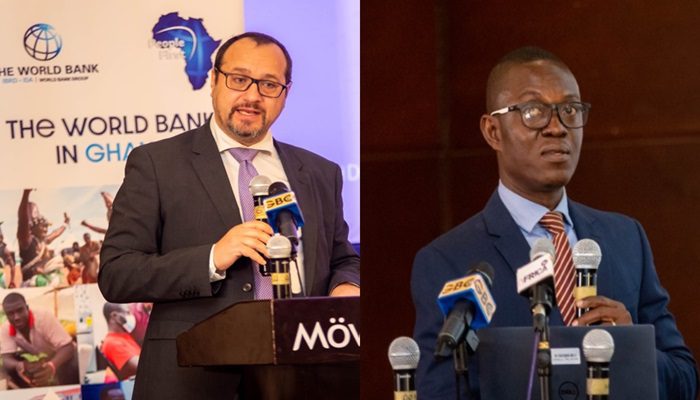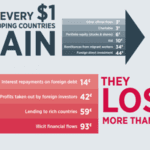The World Bank’s eighth Ghana Economic Update reveals that Ghana has made “steady progress” towards economic stabilization over the past year, though several challenges remain.
The report, launched in Accra on Monday, July 22, attributed the “modest recovery” to a firm monetary policy stance, comprehensive debt restructuring, and structural reforms aimed at supporting long-term growth.
According to the report, Ghana’s economy showed resilience in 2023, achieving a growth rate of 2.9%.
However, it cautioned that financial sector stress, contingent liabilities in the cocoa and energy sectors, and potential election expenditure slippages could hinder sustainable stability.
Enhancing tax revenue for fiscal stability
The report, themed “Strengthening Domestic Revenue Systems for Fiscal Sustainability,” emphasized the need for the Ghanaian government to enhance tax revenue mobilization through robust measures.
It recommended the full implementation of policies associated with the ongoing $3 billion International Monetary Fund (IMF) loan-support program.
Mr. Stefano Curto, Lead Economist for Ghana, Liberia, and Sierra Leone at the World Bank, highlighted the importance of fiscal consolidation efforts.
“The macroeconomic situation has improved considerably over the past year… growth in 2023 was more resilient than projected, reaching 2.9%. It is important to emphasize that Ghana has made commendable strides on fiscal consolidation,” said Mr. Curto.
He added that enhancing tax revenue while minimizing the impact on growth and the poor is crucial for sustainable fiscal consolidation.
Recommendations for tax system reforms
Mr. Curto recommended streamlining and simplifying the complexities surrounding personal income tax, Value Added Tax (VAT), excise duty, and corporate income tax.
He also suggested rationalizing tax exemptions to enhance the country’s tax revenue system.
Govt initiatives and future projections
Mr. Kwabena Gyan Kwakye, Economist at the World Bank, Ghana, urged the government to continue its efforts, particularly in expenditure management.
He projected a 3.1% growth for Ghana by the end of 2024, with the potential for 5% growth by 2025, contingent on the full implementation of stabilization efforts.
Dr. Alex Ampaabeng, Deputy Finance Minister, acknowledged the challenges within the country’s tax administrative system.
He stated that the government had initiated reforms to make the system more efficient and increase domestic revenue mobilization.
Dr. Ampaabeng noted that Ghana’s tax-to-Gross Domestic Product (GDP) ratio has been very low, necessitating the design of the National Revenue Policy in 2023 and a subsequent medium-term revenue strategy.
Efforts to improve taxpayer data
The Ministry of Finance is actively working with the Ghana Revenue Authority (GRA) on data cleansing to identify taxpayers accurately.
Currently, about 7.4 million taxpayers are in the country’s database, with only 1.9 million being active.
The remaining 5.4 million are inactive, with an additional one million eligible taxpayers being dormant.
Dr. Ampaabeng emphasized the importance of accurate data, facilitated by the digitization of addresses and linking Ghana cards with bank accounts and businesses.
The World Bank’s Ghana Economic Update aims to inform public discussions on economic issues and policy trade-offs.
It seeks to facilitate dialogue among stakeholders to build consensus and ensure necessary reforms for enhanced macroeconomic management and sustainable, inclusive growth. The report underscores the need for continued commitment to economic reforms and international support to navigate the challenges and achieve long-term stability.
- Commonwealth lawyers demand reversal of CJ’s suspension - 10 May 2025
- Cedi to resume depreciation in late 2025, S&P warns - 10 May 2025
- Debt restructuring, IMF deal, gold surge propel Ghana to S&P Upgrade - 10 May 2025




